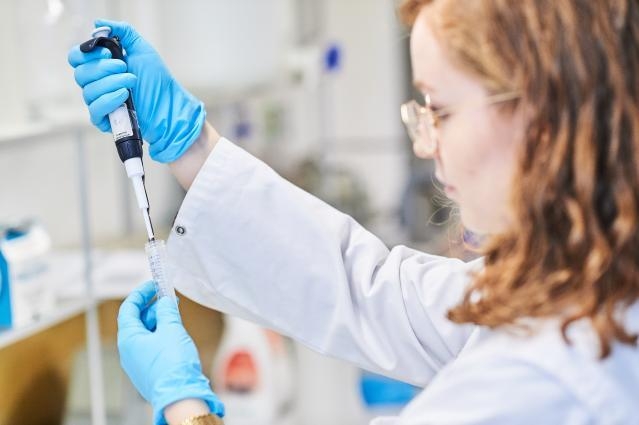Horizon Europe 2021-2027
 Horizon Europe 2021-2027 is the Ninth Framework Program for Research and Innovation for the seven-year period 2021-27. The program supports research, development and innovation activities in Europe, with the aim of mobilizing investment and contributing to EU growth, in line with the dual green and digital transition.
Horizon Europe 2021-2027 is the Ninth Framework Program for Research and Innovation for the seven-year period 2021-27. The program supports research, development and innovation activities in Europe, with the aim of mobilizing investment and contributing to EU growth, in line with the dual green and digital transition.
The objectives of Horizon Europe
The overall objective of the program is to generate scientific, technological, economic, and societal impact through the Union's R&I investments in order to strengthen the Union's scientific and technological foundations and promote the Union's competitiveness in all Member States, including in its industrial sector, achieve the Union's strategic priorities, contribute to the realization of the Union's goals and policies, address global challenges, including the SDGs following the principles of Agenda 2030 and the Paris Agreement, and strengthen the ERA. The program thus maximizes the Union's added value by focusing on objectives and activities that can be effectively achieved not by the action of member states alone, but in cooperation.
The specific objectives of the program are as follows:
- (a) to develop, promote, and advance scientific excellence; to support the creation and dissemination of new high-quality fundamental and applied knowledge as well as skills, technologies, and solutions; to promote the training and mobility of researchers; to attract talent at all levels; and to contribute to the full participation of the Union's talent pool in the actions supported under the program;
- (b) generate knowledge, strengthen the impact of R&I in the design, support and implementation of Union policies, and support the uptake of, and access to, innovative solutions in European industry, particularly SMEs, and society in order to address global challenges, including climate change and the SDGs;
- (c) promote all forms of innovation, facilitate technology development, demonstration and transfer of knowledge and technology, and strengthen the dissemination and exploitation of innovative solutions;
- (d) optimize program implementation to strengthen and enhance the impact and attractiveness of ERA, promote excellence-based program participation from all member states, including low-performing R&I countries, and facilitate collaborative relationships in European R&I
The structure of the program
Horizon Europe is structured in three pillars:
- Open Science, which includes the European Research Council (ERC), Marie Skłodowska-Curie Actions, and Research Infrastructures;
- Global Challenges and Industrial Competitiveness, which includes five thematic clusters (Health; Culture, Creativity and Inclusive Society; Civil Security for Society; Digital, Industry and Space; Climate, Energy and Mobility; and Food, Bioeconomy, Natural Resources, Agriculture and Environment) and the non-nuclear direct actions of the Joint Research Center (JRC);
- Open Innovation, which includes the European Innovation Council (EIC), European Innovation Ecosystems, and the European Institute of Innovation and Technology (EIT).
In addition to the three pillars there is a section on Widening Participation and Strengthening the European Research Area, with two components:
- Broadening participation and spreading excellence;
- Reform and improvement of the European research and innovation system.
The 5 missions of Horizon Europe
The missions are programmed under Pillar II Global Challenges and Industrial Competitiveness-but may also benefit from actions carried out under other parts of Horizon Europe-and cover 5 thematic areas:
- climate change adaptation
- cancer
- oceans, seas and waters
- smart and climate-neutral cities
- soil health and food
The missions enable competing solutions, producing pan-European value and impact.
Legal entities eligible for participation
Any legal entity, regardless of where it is established and including legal entities from non-associated third countries or international organizations, may participate in actions under the program, provided that the conditions set out in these regulations are met together with any conditions set out in the work program or call for proposals.
Legal entities eligible for funding
Legal entities established in a member state or an associated country are eligible for funding.
Legal entities established in a non-associated third country bear the costs of their own participation. However, a legal entity established in low- or middle-income and, exceptionally, other non-associated third countries is eligible for funding in an action if:
- (a) the third country is indicated in the work program adopted by the Commission;
- (b) the Commission or the relevant funding body considers that the participation of the legal entity concerned is necessary for the implementation of the action.
Forms of Funding
Funding under the program can be provided through grants, prizes, contracts and also financial instruments.
Horizon Europe is implemented in synergy with other Union programs through 4 types of synergies, including Seal of excellence and cumulative funding.
Budget
In the seven-year period 2021-2027, Horizon Europe will have a budget, in current prices, of €86.123 billion; additional resources may be allocated to the program under the agreement reached in December 2020 on the EU Budget 2021-2027 and Next Generation EU.
o
- #TitoloData aperturaData chiusura
- 118 Mar 202130 Jun 2021

